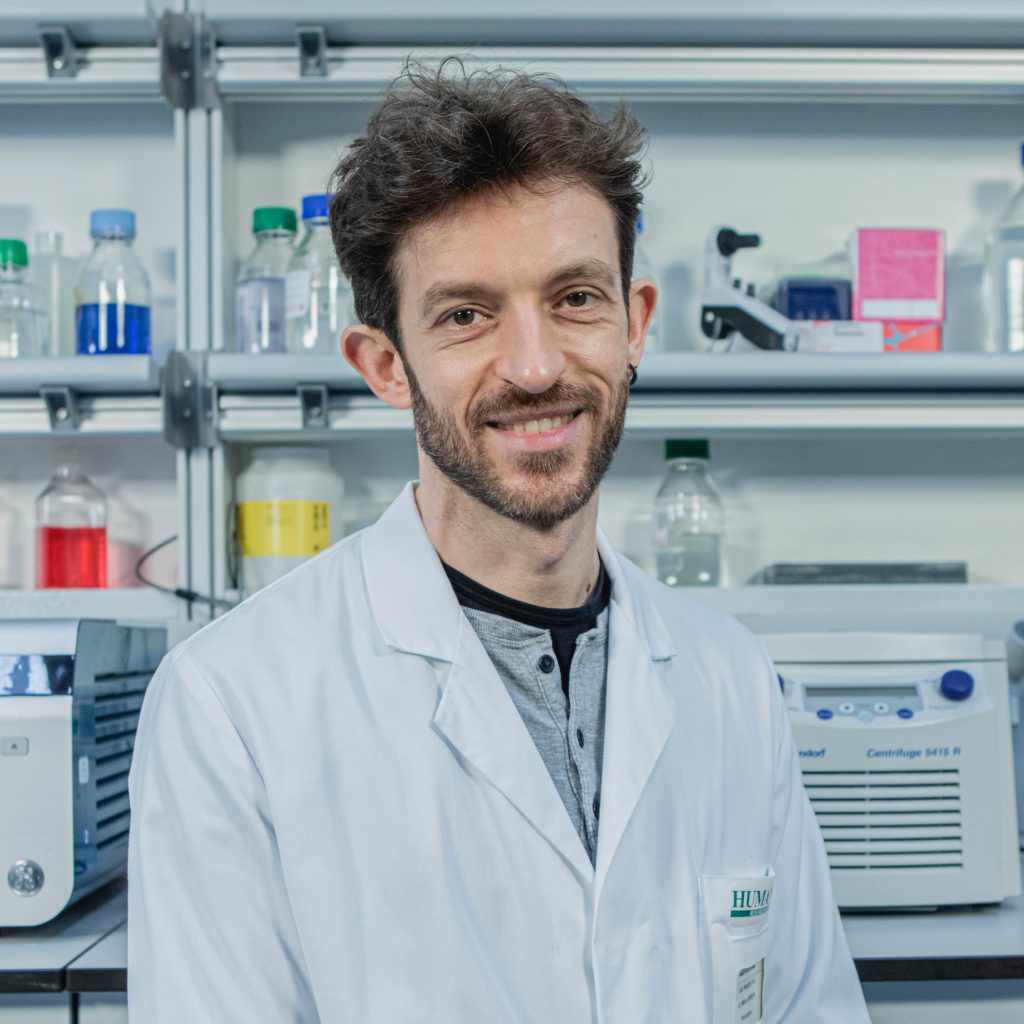Marco Erreni got his master’s degree in Medical Biotechnology in 2005 working at the European Institute of Oncology, Milan, under the supervision of Prof. Giuliana Pelicci. Subsequently, he moved to the Humanitas Research Hospital, where he got his PhD in Experimental Pathology and Neuropathology in 2012, under the supervision of Prof. Paola Allavena. His principal interest was the role of inflammation in the establishment and progression of cancer, in particular on colorectal cancer, a paradigm of the cancer-related inflammation. Concomitantly, he began to study the role of tumor-associated macrophages (TAMs) in the onset and progression of different types of tumors, with a specific interest on the role of a specific population of colonic-resident macrophages.
During his career, he had the opportunity to acquire a strong experience in the field of Imaging, acquiring skills in different advanced microscopy techniques, such as Live-cell Imaging, TIRF, FLIM, FRET, FRAP, 2-Photon and super-resolution STED microscopy. Combining the experties acquired in both preclinical models and imaging, in 2014 he set up the optical non-invasive in vivo Imaging unit at the IRCCS Humanitas Research Hospital, setting different protocols for the visualization of in vivo biological processes. In 2016, he spent a period at the Laboratory of Cellular and Molecular Biology at the National Institutes of Health (NIH), Bethesda, MD, USA, under the supervision of Professor Roberto Weigert, working in the field of IVM 2P microscopy. Starting from 2016, he set up protocols to study immune response in different experimental model of inflammation and cancer by IVM 2P microscopy.
Since 2017, he joined the Multiscale ImmunoImaging Unit, where he is in charge of using and managing systems of Live Cell Imaging, Confocal, super-resolution STED and IVM 2P microscopy, as well as Imaging Mass Cytometry, in the context of preclinical studies associated with infection and cancer immunology. (Orcid 0000-0002-1922-0818; Scopus ID 11241336000; H-index 24).
